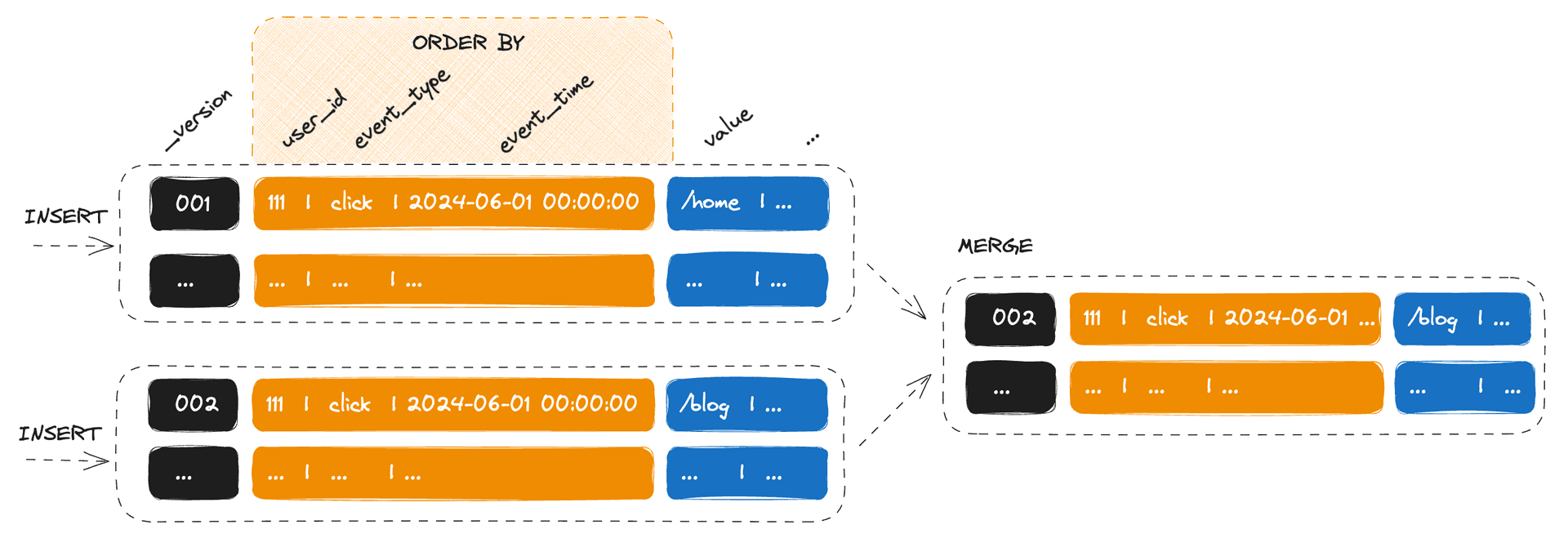My favorite ClickHouse table engine is `ReplacingMergeTree`. The main reason is that it is similar to `MergeTree` but can automatically deduplicate based on columns in the `ORDER BY` clause, which is very useful.

My favorite ClickHouse table engine is `ReplacingMergeTree`. The main reason is that it is similar to `MergeTree` but can automatically deduplicate based on columns in the `ORDER BY` clause, which is very useful.

After starting this series ClickHouse on Kubernetes, you can now configure your first single-node ClickHouse server. Let's dive into creating your first table and understanding the basic concepts behind the ClickHouse engine, its data storage, and some cool features

Now that you have your first ClickHouse instance on Kubernetes and are starting to use it, you need to monitoring and observing what happens on it is an important task to achieve stability.

Dynamic column selection (also known as a `COLUMNS` expression) allows you to match some columns in a result with a re2 regular expression.

ClickHouse has been both exciting and incredibly challenging based on my experience migrating and scaling from Iceberg to ClickHouse, zero to a large cluster of trillions of rows. I have had to deal with many of use cases and resolve issues. I have been trying to take notes every day for myself, although it takes time to publish them as a series of blog posts. I hope I can do so on this ClickHouse on Kubernetes series.

So, I hadn't really planned on writing a summary post for this year, as lazy as I am, but somehow, here we are.

OpenDAL is a data access layer that allows users to easily and efficiently retrieve data from various storage services in a unified way such as S3, FTP, FS, Google Drive, HDFS, etc. They has been rewritten in Rust for the Core and have a binding from many various language like Python, Node.js, C, etc..

It's been years since I first started using neovim and I've been updating it regularly ever since.

In this post, I want to explore the features and capabilities of DuckDB, an open-source, in-process SQL OLAP database management system written in C++11 that has been gaining popularity recently. According to what people have said, DuckDB is designed to be easy to use and flexible, allowing you to run complex queries on relational datasets using either local, file-based DuckDB instances or the cloud service MotherDuck.

How to control parallelism and concurrency